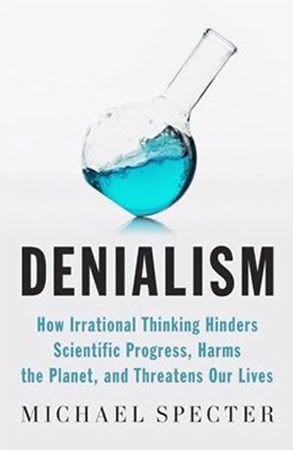 Michael Specter is a staff writer for the New Yorker. His new book, Denialism, asks why we have increasingly begun to fear scientific advances instead of embracing them.
Michael Specter is a staff writer for the New Yorker. His new book, Denialism, asks why we have increasingly begun to fear scientific advances instead of embracing them.
Specter recently spoke at the TEDGlobal2010 Conference, held over the course of four days in Oxford, England to explore “the shocking undercurrent of good news just below the surface of today’s troubling headlines — new ideas, new science, new technology, new social and political thinking, new art and a new understanding of who we are”.
While I don’t agree with everything Specter says here and I don’t disagree with a lot of it, one of the things that I cannot deny is that I’m not always wrong in my opinions. I doubt that you can either.
But nor am I always right.
Why Michael Specter is worth listening to:
Michael Specter’s new book, Denialism: How Irrational Thinking Hinders Scientific Progress, Harms the Planet and Threatens Our Lives, dives into a worrisome strain of modern life — a vocal anti-science bias that may prevent us from making the right choices for our future. Specter studies how the active movements against vaccines, genetically engineered food, science-based medicine and biotechnological solutions to climate change may actually put the world at risk. (For instance, anti-vaccination activists could soon trigger the US return of polio, not to mention the continuing rise of measles.) More insidiously, the chilling effect caused by the new denialism may prevent useful science from being accomplished.
Specter has been a writer for the New Yorker for more than a decade; before that, he was a science writer and then the Moscow bureau chief for the New York Times. He writes about science and politics for the New Yorker, with a fascinating sideline in biographical profiles.
Spend sixteen and a half minutes with Michael Specter here, and see if he doesn’t challenge some of your ideas that you might be wrong about. Or some you might be right about.
Recorded at TEDGlobal2010 – February 2010
